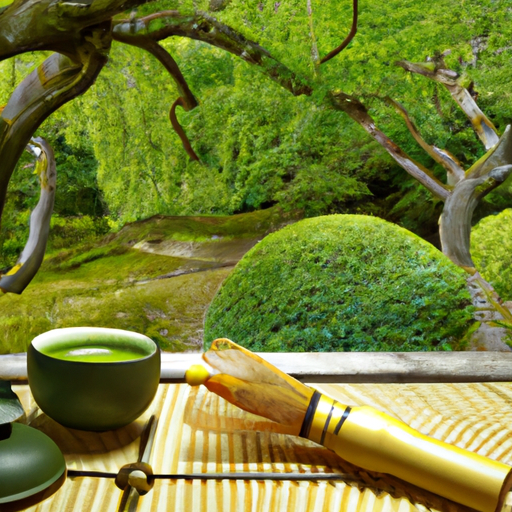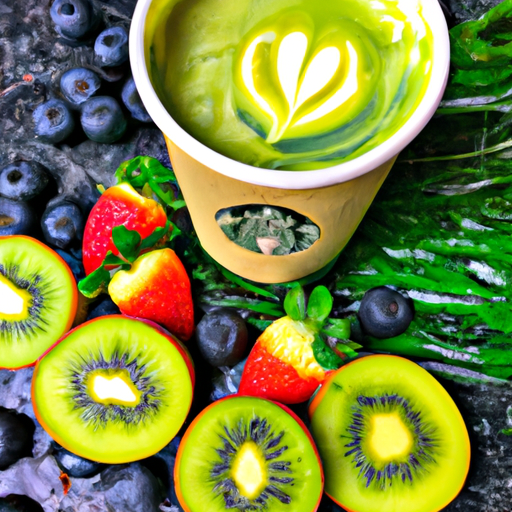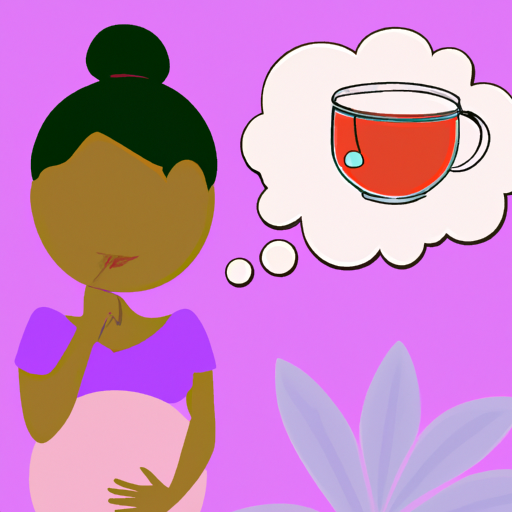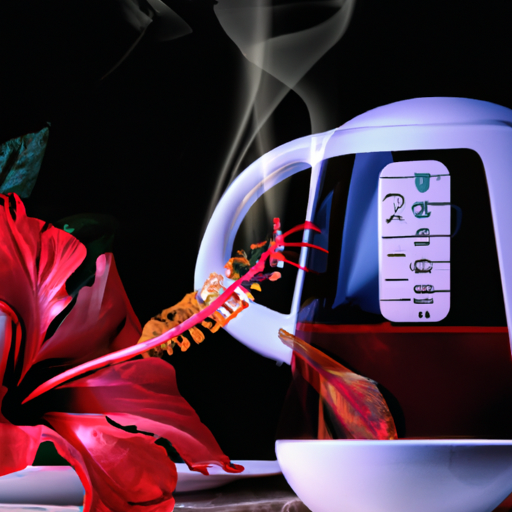As a person who appreciates a great morning energizer, I’ve frequently pondered which beverage contains more caffeine: matcha or coffee?
Caffeine is a naturally occurring stimulant that can have both positive and negative effects on the body. It’s found in many beverages, including tea, coffee, and energy drinks, and is often used to increase alertness and improve cognitive function.
In this article, we’ll take a closer look at caffeine and how it affects the body, as well as explore the differences between matcha and coffee. We’ll examine the caffeine content of each drink and discuss the factors that can affect the amount of caffeine in each cup.
By the end of this article, you’ll have a better understanding of which drink has more caffeine and why caffeine content matters.
Key Takeaways
- Matcha contains less caffeine than coffee, with about 70 milligrams per cup compared to coffee’s 95 milligrams per 8-ounce cup.
- The caffeine in matcha is absorbed more slowly and evenly by the body, providing a sustained energy boost without the jitters often associated with coffee.
- Matcha contains L-theanine, an amino acid that promotes relaxation and reduces stress, making it a good option for those who want to avoid sudden spikes and drops in energy levels.
- Ultimately, the decision to choose between matcha and coffee comes down to personal preference and individual health goals, as both have distinct taste profiles and can have different impacts on sleep quality.
What is Caffeine and How Does it Affect the Body?
You might be wondering how caffeine affects your body and what it actually is. Caffeine is a natural stimulant found in coffee, tea, energy drinks, and other beverages.
Once you consume caffeine, it is absorbed into your bloodstream and sent to your brain where it blocks the neurotransmitter adenosine. This, in turn, increases the release of other neurotransmitters such as dopamine and norepinephrine, leading to increased alertness, focus, and energy.
Caffeine metabolism varies from person to person. Some people can metabolize caffeine quickly, while others may take longer to process it. The effects of caffeine on sleep patterns also vary from person to person.
Consuming caffeine too close to bedtime can cause difficulty falling asleep, staying asleep, or experiencing poor quality sleep. It’s important to monitor your caffeine intake and adjust accordingly.
Understanding matcha is the next step in determining whether it contains more caffeine than coffee.
Understanding Matcha
I’m excited to dive into the topic of matcha and explore its history and origins, as well as its potential health benefits.
Matcha has a rich cultural heritage in Japan, where it has been enjoyed for centuries as a ceremonial tea.
As a green tea, matcha is also known for its high antioxidant content and potential health benefits, making it a popular choice among health-conscious individuals.
History and Origins
During the Tang Dynasty in China, matcha was introduced as a ceremonial tea, with its origins dating back to the 8th century. Matcha has a rich cultural significance in Japan, where it is still used in traditional tea ceremonies. The preparation of matcha involves grinding the tea leaves into a fine powder and whisking it with hot water. This method preserves the health benefits of the tea and enhances its flavor.
Coffee, on the other hand, originated in Ethiopia and spread to the Arabian Peninsula. Unlike matcha, coffee was not seen as a ceremonial beverage, but was consumed for its stimulating effects. The traditional preparation involves roasting the coffee beans and brewing them with hot water.
While coffee and matcha have different origins and cultural significance, both have been enjoyed for centuries and continue to be popular beverages today. Moving on to health benefits, it is important to understand how the caffeine content in matcha and coffee affects the body.
Health Benefits
Get ready to feel energized and refreshed with the amazing health benefits of these beloved beverages. Matcha is known for having a high concentration of antioxidants, particularly catechins, which help protect cells from damage caused by free radicals. Additionally, matcha contains L-theanine, an amino acid that has been shown to promote relaxation and reduce stress. This combination of caffeine and L-theanine provides a sustained energy boost without the jitters often associated with coffee.
If you’re looking for ways to incorporate matcha into your diet, there are plenty of delicious matcha recipes available online. Matcha can be used in smoothies, baked goods, and even as an ingredient in savory dishes, such as pesto. And for those who are caffeine-sensitive or looking for caffeine alternatives, matcha is a great option as it provides a more gradual release of caffeine than coffee.
Understanding coffee and its effects on the body is important for making informed choices about caffeine consumption. So let’s take a closer look at the science behind coffee and how it affects us.
Understanding Coffee
I find coffee to be a fascinating topic, with its rich history and potential health benefits.
The origins of coffee can be traced back to Ethiopia, where it was first consumed as a brewed beverage.
Over time, it has become a staple in cultures around the world, and research suggests that moderate coffee consumption may have a variety of positive effects on our health.
Origins and History
Hey, did you know that the history of matcha and coffee is like a caffeine-fueled game of ‘who came first?’ Both matcha and coffee have been enjoyed for centuries in different parts of the world.
Coffee has its origins in Ethiopia, where it was first cultivated around the 9th century, while matcha has its roots in China, where it was used in medicinal practices as early as the Tang dynasty (618-907 AD). Matcha cultivation practices eventually made their way to Japan, where it became an integral part of the country’s tea culture and was used in traditional tea ceremonies.
Matcha was traditionally consumed by Buddhist monks to help them stay alert and focused during long meditation sessions. Coffee, on the other hand, was initially used in the Islamic world as a stimulant to help people stay awake during nighttime prayers.
Over time, both matcha and coffee have become popular beverages around the world, enjoyed for their unique tastes and energizing properties. With this in mind, let’s now turn our attention to the health benefits associated with these two drinks.
Health Benefits
As we learned in the previous section, matcha and coffee have vastly different origins and histories. But when it comes to health benefits, both beverages have their own unique advantages.
Matcha, for example, is packed with antioxidants, which are compounds that help protect cells from damage caused by free radicals. In fact, matcha contains up to 137 times more antioxidants than regular green tea! These antioxidants are believed to have anti-inflammatory and anti-cancer properties, making matcha a great addition to any healthy diet.
On the other hand, coffee is known for its ability to provide a quick burst of energy and mental alertness. However, coffee can also be quite acidic, which can lead to digestive issues for some people. Despite this, studies have shown that coffee consumption may be linked to a reduced risk of several chronic diseases, such as Parkinson’s disease, liver disease, and type 2 diabetes. Additionally, coffee contains its own unique set of antioxidants, which can help protect against cellular damage and inflammation.
Matcha is a great source of antioxidants, which can help protect cells from damage caused by free radicals. Coffee consumption has been linked to a reduced risk of several chronic diseases, such as Parkinson’s disease and type 2 diabetes. Matcha contains up to 137 times more antioxidants than regular green tea. Coffee can be quite acidic, which can lead to digestive issues for some people. Both matcha and coffee contain their own unique set of antioxidants, which can help protect against cellular damage and inflammation.
Now that we know more about the health benefits of matcha and coffee, it’s time to take a closer look at their caffeine content and why it matters.
Why Caffeine Content Matters
Understanding why caffeine content matters is crucial in deciding whether to consume matcha or coffee. Caffeine is a stimulant that affects the central nervous system and can lead to caffeine addiction. Consuming too much caffeine on a regular basis can cause caffeine withdrawal symptoms such as headaches, fatigue, and irritability.
The amount of caffeine in a beverage can vary based on the type of coffee bean or tea leaf used, the brewing method, and the serving size. It’s important to consider the caffeine content in relation to your personal caffeine tolerance and daily intake. Too much caffeine can lead to negative side effects, while too little may not provide the desired benefits.
Knowing the caffeine content in matcha and coffee can help you make an informed decision about which beverage to choose. But how is caffeine content measured? This can be determined by analyzing the amount of caffeine present in a standardized serving size of the beverage.
How is Caffeine Content Measured?
As mentioned in the previous subtopic, knowing the caffeine content of a particular beverage is essential, especially for those who want to regulate their caffeine intake. But, how do we measure caffeine content accurately? Measuring caffeine content is crucial as it determines the potency of a particular beverage.
One of the most common methods in measuring caffeine content is through high-performance liquid chromatography (HPLC). This method involves extracting caffeine from a sample and separating it from other components using a chromatography column. The separated caffeine is then quantified by measuring the amount of light absorbed by the caffeine molecule.
Another method used is the spectrophotometric method, which uses UV-visible light to measure caffeine content. Caffeine extraction methods also play a vital role in determining caffeine content accurately. The extraction process involves dissolving caffeine from the sample into a solvent and quantifying it.
Different extraction methods can result in variations in caffeine content, making it essential to use a standardized method. The extraction methods that are commonly used are solvent extraction, supercritical fluid extraction, and solid-phase extraction.
Understanding how caffeine content is measured and the different methods used to extract caffeine from the sample is essential in determining the exact caffeine content of a particular beverage.
In the subsequent section, we will focus on the caffeine content in coffee and compare it to matcha.
Caffeine Content in Coffee
Get ready to be surprised by the amount of caffeine in your morning cup of joe! Coffee is known for its energizing effects, and this is largely due to the caffeine content.
The exact amount of caffeine in coffee can vary depending on various factors, such as the type of coffee bean, the roast level, and the brewing method. Comparing sources, it has been found that an 8-ounce cup of brewed coffee contains around 95 milligrams of caffeine, while an espresso shot contains around 63 milligrams. However, some specialty coffee drinks, such as a venti-sized brewed coffee from Starbucks, can contain up to 415 milligrams of caffeine!
While coffee is a common source of caffeine for many people, there are potential drawbacks to consider. Drinking too much coffee can lead to negative side effects, such as jitters, anxiety, and insomnia. Additionally, it can contribute to dehydration and increase the risk of heartburn and acid reflux. It’s important to consume coffee in moderation and be mindful of any negative effects it may have on your health.
In the next section, we’ll explore the caffeine content in matcha and how it compares to coffee. While coffee may be the go-to for many, it’s worth considering alternative sources of caffeine that may have less potential drawbacks.
Caffeine Content in Matcha
Although commonly mistaken for just another green tea, it’s worth noting the caffeine content in matcha differs from that in coffee. Matcha, a green powder made from finely ground green tea leaves, contains caffeine as one of its primary sources of energy. According to studies, one cup of matcha has about 70 milligrams of caffeine, which is slightly lower than the caffeine content in a cup of coffee.
Matcha caffeine levels can vary based on the way it’s prepared, the quality of the tea leaves used, and the serving size. Nevertheless, it’s clear that matcha does contain caffeine, and can provide a boost of energy similar to coffee. However, unlike coffee, matcha also contains L-theanine, an amino acid that can help boost relaxation and focus, providing a more balanced and sustained energy boost.
Although both matcha and coffee contain caffeine, the levels differ slightly, and the experience of drinking each beverage can vary greatly.
In the subsequent section, we’ll explore which drink has more caffeine and the implications of these differences.
Which Drink Has More Caffeine?
As we learned in the previous subtopic, matcha contains a significant amount of caffeine. However, the question remains: does it have more caffeine than coffee? Let’s explore this topic further.
-
Caffeine content: First and foremost, it’s important to note that the caffeine content in both matcha and coffee can vary depending on the type and preparation of the drink. On average, a cup of coffee contains about 95 mg of caffeine, while a cup of matcha contains about 70 mg. Therefore, coffee has more caffeine than matcha.
-
Taste comparison: While coffee is known for its bold and bitter taste, matcha has a more delicate and earthy flavor. Matcha is also known for its ability to provide a calm energy boost, while coffee can sometimes lead to jitters and anxiety.
-
Impact on sleep quality: Another important factor to consider is the impact that these drinks can have on sleep quality. Due to its higher caffeine content, coffee can disrupt sleep patterns and lead to insomnia if consumed too close to bedtime. On the other hand, matcha’s lower caffeine content may make it a better choice for those who are sensitive to caffeine and want to avoid sleep disturbances.
While coffee has more caffeine than matcha, the two drinks have distinct taste profiles and can have different impacts on sleep quality. When deciding between the two, it’s important to consider your individual preferences and needs. In the next section, we’ll explore other factors to consider when choosing between matcha and coffee.
Other Factors to Consider
When it comes to comparing the caffeine content of matcha and coffee, it’s important to consider other factors beyond just the numbers.
One such factor is the rate at which caffeine is absorbed by the body.
Additionally, both matcha and coffee offer various health benefits and drawbacks that should be taken into account when deciding which drink to consume.
As someone who values evidence-based information, I believe it’s crucial to examine all angles of this topic to make an informed decision.
Caffeine absorption rates in the body
Did you know that your body absorbs caffeine differently depending on the source, which could play a role in determining whether matcha or coffee has more caffeine? Caffeine metabolism varies from person to person and is influenced by factors such as age, weight, genetics, and existing health conditions.
However, studies have shown that the caffeine in matcha is absorbed more slowly and evenly by the body compared to coffee. This is because matcha contains L-Theanine, an amino acid that promotes relaxation and reduces anxiety. L-Theanine slows down the absorption of caffeine, resulting in a smoother and longer-lasting energy boost without the jitters or crash commonly associated with coffee.
Peak caffeine levels in the bloodstream also differ between matcha and coffee. In coffee, caffeine reaches its peak levels in the bloodstream within 30-60 minutes after consumption, while in matcha, it takes 3-4 hours to reach peak levels. This means that the caffeine in matcha is gradually released into the bloodstream, providing sustained energy and alertness for several hours.
Therefore, while matcha may contain less caffeine per serving than coffee, its slower and more sustained release of caffeine makes it a better option for those who want to avoid sudden spikes and drops in energy levels throughout the day.
With these differences in mind, it’s important to consider other health benefits and drawbacks of each drink when determining which one is right for you.
Other health benefits and drawbacks of each drink
Additionally, it’s important to weigh the potential pros and cons of incorporating either drink into your daily routine. While coffee is known for its high caffeine content, it also contains a lot of antioxidants and has been linked to a decreased risk of certain diseases such as type 2 diabetes and Parkinson’s disease. However, excessive consumption of coffee can lead to negative effects such as jitteriness, anxiety, and disrupted sleep patterns.
On the other hand, matcha contains lower amounts of caffeine compared to coffee but is rich in antioxidants and has been shown to improve brain function, boost metabolism, and promote relaxation. Matcha also has a unique taste that is often described as earthy and slightly bitter, while coffee has a strong and bold flavor. When it comes to nutritional value, matcha is also a good source of vitamins and minerals such as vitamin C, potassium, and iron. Ultimately, the decision to choose between matcha and coffee comes down to personal preference and individual health goals.
| Nutrient | Coffee | Matcha |
|---|---|---|
| Caffeine | High | Low |
| Antioxidants | High | Very High |
| Taste | Strong and bold | Earthy and slightly bitter |
| Nutritional Value | Good source of antioxidants, vitamins, and minerals | Good source of antioxidants, vitamins, and minerals, as well as amino acids and chlorophyll |
Both matcha and coffee have their own unique health benefits and drawbacks. While coffee is known for its higher caffeine content and bold taste, matcha offers a lower caffeine content, rich antioxidants, and a unique earthy flavor. When it comes to nutritional value, both drinks offer a good source of antioxidants, vitamins, and minerals. Ultimately, the choice between matcha and coffee comes down to personal preference and individual health goals.
Frequently Asked Questions
What other health benefits does matcha have besides caffeine content?
As someone who’s researched the health benefits of matcha, I can confidently say that it offers much more than just caffeine.
Matcha is packed with antioxidants, which can help reduce inflammation and protect against chronic diseases such as cancer and heart disease. In fact, matcha has been found to contain up to 137 times more antioxidants than green tea.
Additionally, matcha has been linked to weight loss due to its high concentration of catechins, a type of antioxidant that’s been shown to boost metabolism and increase fat burning.
So while caffeine may be a factor to consider when comparing matcha and coffee, the health benefits of matcha go far beyond just its caffeine content.
Can caffeine content differ among different types of coffee or matcha?
Caffeine sources can indeed differ among different types of coffee or matcha. For instance, Arabica coffee contains less caffeine than Robusta coffee, while ceremonial-grade matcha has less caffeine than culinary-grade matcha.
Nevertheless, when it comes to comparing caffeine content between coffee and tea, it’s important to consider the serving size. On average, an 8-ounce cup of coffee contains around 95 mg of caffeine, whereas an 8-ounce cup of matcha contains around 70 mg of caffeine. However, matcha provides a more sustained energy boost due to its unique combination of caffeine and L-theanine, an amino acid that promotes relaxation without drowsiness.
Other health benefits of matcha include a high concentration of antioxidants, vitamins, and minerals, as well as potential anti-inflammatory and anti-cancer properties. Overall, both coffee and matcha can be consumed in moderation as part of a healthy and balanced diet.
How does caffeine affect a person’s sleep patterns?
Caffeine’s impact on sleep patterns can vary from person to person depending on their sensitivity to the substance. As someone who’s particularly sensitive to caffeine, I’ve found that even a small amount of caffeine consumed in the afternoon can disrupt my ability to fall asleep at night.
This is because caffeine is a stimulant that blocks the action of adenosine, a neurotransmitter that promotes sleepiness. While recommended caffeine intake levels vary depending on factors such as age and health status, it’s generally recommended that individuals consume no more than 400mg of caffeine per day.
Consuming caffeine in moderation and avoiding it in the afternoon or evening can help to minimize its impact on sleep patterns.
Are there any negative side effects to consuming too much caffeine?
Wow, caffeine’s an amazing substance. I can’t function without my morning cup of joe, but I also enjoy a nice cup of tea or energy drink in the afternoon.
However, too much caffeine can have negative side effects on the body. Heart palpitations and anxiety are potential negative effects of excessive caffeine consumption. It’s important to note that the caffeine content in tea and energy drinks can vary greatly, so it’s always best to check the label.
When consumed in moderation, caffeine can provide a boost of energy and alertness, but it’s important to listen to your body and not overdo it. As with anything, moderation’s key.
Is decaf coffee or matcha a viable alternative for those looking to avoid caffeine?
When it comes to avoiding caffeine, decaf alternatives such as decaf coffee or matcha can be a viable option. Decaf coffee is made by removing most of the caffeine from the coffee beans, resulting in a beverage with about 97% less caffeine than regular coffee.
Matcha, on the other hand, is made from ground green tea leaves and contains caffeine, but at lower levels compared to coffee. In terms of taste, decaf coffee and matcha have different profiles, with decaf coffee retaining much of the flavor of regular coffee, while matcha has a unique, slightly sweet and earthy taste.
Ultimately, the choice between decaf coffee and matcha depends on personal preference and the desired level of caffeine intake.
Conclusion
So, what’s the verdict? Does matcha or coffee have more caffeine? Well, it’s not quite that simple.
While coffee typically has more caffeine per serving, matcha contains a unique combination of caffeine and other compounds that can produce a more sustained and focused energy boost.
Additionally, the preparation and serving size of both drinks can also impact caffeine content.
As someone who enjoys both matcha and coffee, I appreciate the versatility of these drinks and the different benefits they provide.
Whether I need a quick jolt of energy or a more sustained focus for work or exercise, I can choose the drink that best fits my needs. And ultimately, that’s what matters most – finding what works for you and your body.
So go ahead, enjoy your matcha latte or your morning cup of joe, and embrace the coincidences that led you to discover your new favorite caffeine source.










